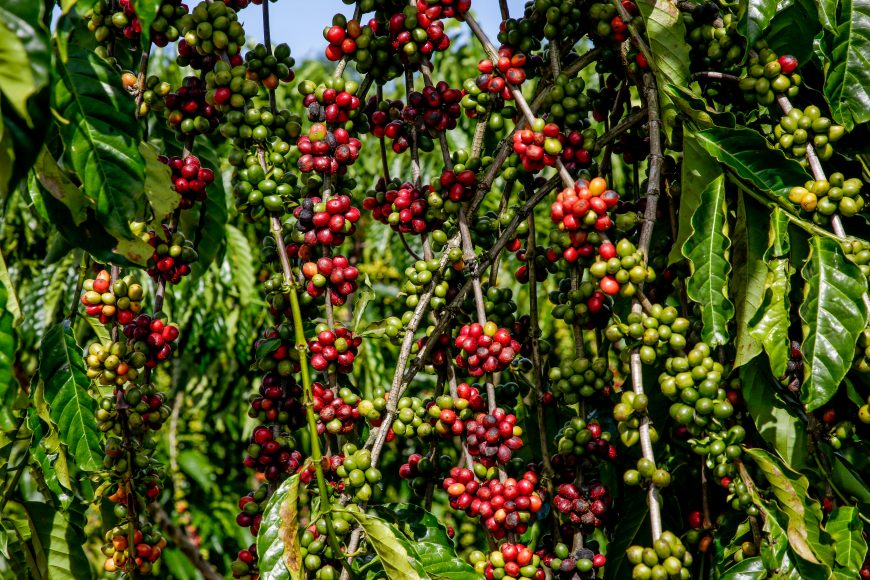RIO DE JANEIRO, BRAZIL – Frosts last Tuesday (20) may have caused “light to severe” damage to between 8% and 11% of Arabica coffee crops in Brazil, the world’s largest producer and exporter of the bean, the Ministry of Agriculture reported Friday.
“It is estimated that the frosts that occurred on July 20 affected an area of between 150,000 and 200,000 hectares of arabica coffee crops, with the possibility of low, medium and high-intensity impacts,” the National Supply Company (Conab), a technical body under the Ministry, said in a statement.

“It is estimated that the percentage of Arabica coffee area affected by frost, with possible light, moderate or severe damage, is equivalent to between 8% and 11% of the total area,” explained Conab.
The Arabica variety represents about 82% of Brazilian coffee exports, while the Robusta bean accounts for 9%.
According to the agency, even though the area cultivated with arabica coffee affected by the frosts is about 860,000 hectares, equivalent to 48% of the crops of this grain in the country, the area actually impacted by the climatic phenomenon was much smaller.
“It is estimated that the percentage of Arabica coffee area affected by frost, with possible light, moderate or severe damage, is equivalent to between 8% and 11% of the total area,” explained Conab.
The Brazilian government does not yet estimate the losses caused by the frosts, which have already caused a 10% increase in the grain prices in international markets, and this Friday requested the help of coffee growers to be able to measure the problem.
According to the Exportadora de Café Guaxupé, a major cooperative of producers and exporters that commissioned overflights of the affected regions and the only one that has so far offered a number, the frosts could have caused a loss of up to 4.5 million bags (of 60 kilos) in the 2022 harvest, which is equivalent to almost 10% of the production forecast for 2021.
Brazil, the world’s largest producer and exporter of coffee, expects to harvest 49 million bags of the bean in 2021, a drop of 22.6% compared to the record of 2020 (63 million bags), but, due to the biennial cycle, it initially expected a higher crop in 2022 than in 2020, which is now in doubt.
The damage caused by the frosts will mainly impact the 2022 crop.
This is because the frosts, the most intense in the last 20 years, occurred after a long period of drought and when the harvesting of the 2020-2021 crop had already practically concluded.
“It was not a uniform process, and there are places that were well preserved. It is still early to know the exact dimension of the impact, and that is why the government’s technical teams are preparing a report,” said the director of the Brazilian Specialty Coffee Association (BSCA), Vanusia Nogueira, to Efe.
Teresa Cristina Correa traveled this Friday to Minas Gerais to meet with coffee growers. She warned that the government would only define an aid program when it has more precise information on the damages.
“The report to be prepared by the technical teams of Minas Gerais and the Ministry of Agriculture will be fundamental to define a policy for the region. That is why we ask producers to provide us with correct data, to send us photographs of their crops”, said the Minister.
MORE FROST TO COME
Next week, Brazil could have the most intense cold snap of the century, with temperatures that feel like -25ºC (-13ºF).
According to numerical models analyzed by MetSul, the temperature will be lower than in late June and early July this year, when frost caused much damage to Brazilian agribusiness.
If the study is confirmed over the weekend, cities in São Paulo and Mato Grosso do Sul may experience frost, with a “feel like” temperature of 0°C (32ºF).

